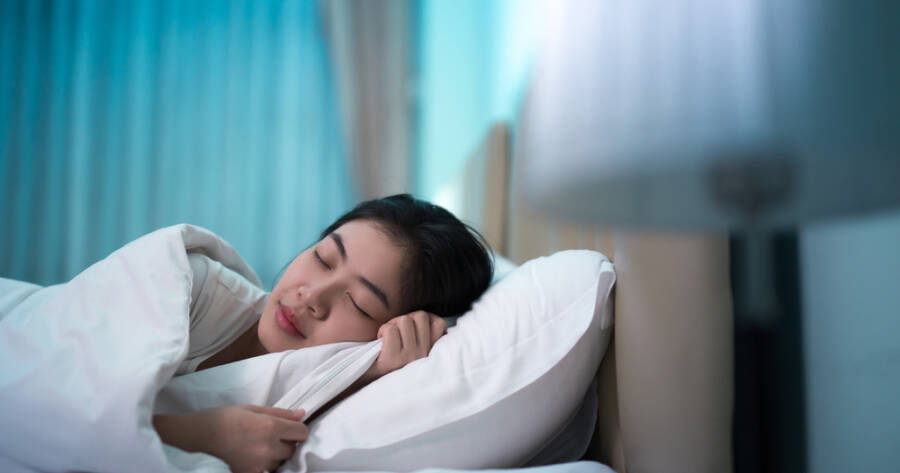Everyone knows that quality sleep is an important factor in good health, but that doesn’t stop many people from neglecting it. Think of sleep hygiene as ‘the art of sleep’, which evaluates all of the criteria an individual needs for optimal rest. If you’re staying up late, looking at your smartphone in the dark, you might benefit from some of the habits that help you enjoy a good night’s sleep and feel rested the next day. Let’s explore the simple changes that can radically improve your sleep hygiene.
Create a Consistent Sleep Schedule
Your body thrives on routine, including your sleep patterns. One of the best ways to improve your sleep hygiene is by going to bed and waking up at the same time every day — yes, even on weekends. This consistency helps regulate your internal clock, making it easier to fall asleep and wake up naturally.
An irregular sleep schedule can confuse your body and lead to difficulty falling asleep or staying asleep. Start by setting a fixed bedtime and sticking to it, even if it means sacrificing some late-night activities.
Establish a Relaxing Bedtime Routine
A relaxing bedtime routine signals your brain that it’s time to wind down for the night. This can help ease the transition from wakefulness to sleep. Your routine might include activities like reading a book, taking a warm bath, or practicing gentle stretches.
Avoid stimulating activities, such as watching TV or checking your phone, as these can make it harder to relax. Instead, focus on calm, peaceful activities that help you relax both your body and mind. A consistent routine not only helps you fall asleep faster but also improves the overall quality of your sleep.
Create an Ideal Sleep Environment
Your bedroom should be a sleep-friendly space. This means keeping it cool, quiet, and dark. A majority of people prefer to sleep in temperatures ranging between 60 and 67°F (15.6 and 19.4°C). 1 A room that is too warm or bright can make it harder to fall asleep or stay asleep. Consider using blackout curtains or an eye mask to block out light, and keep the room slightly cool for optimal comfort.
Additionally, reducing noise is crucial. If you can’t eliminate noise completely, try using a white noise machine or earplugs to drown out any disturbances. Your bed also plays a significant role in your sleep quality. A comfortable mattress and pillows that suit your sleep style are essential. Pay attention to how you feel when you wake up. If you’re feeling stiff or sore, it may be time to replace your mattress or pillows.
Limit Caffeine and Heavy Meals Before Bed
Good sleep hygiene is very dependent on what you eat and drink before bed. Caffeine, found in coffee, tea, chocolate, and some soft drinks, is a stimulant that can keep you awake. This drug can remain in your system for several hours after consumption, so try to avoid caffeine at least six hours before bedtime.
Heavy or large meals can also disrupt your sleep, especially if you eat them too close to bedtime. A heavy meal before bed can force your digestive system to keep working, which can keep you awake. Instead, opt for a light snack if you’re feeling hungry before bed, such as a small piece of fruit or a handful of nuts.
Be Mindful of Your Evening Activities
What you do in the hours leading up to bedtime can impact your ability to fall asleep. Engaging in stressful or stimulating activities can make it difficult to wind down. Try to avoid work-related tasks, intense exercise, or emotionally charged conversations right before bed.
Instead, focus on activities that help you relax, such as light reading, meditation, or listening to soothing music. Practicing mindfulness or breathing exercises can also help calm your mind and prepare your body for sleep.
Get Plenty of Natural Light During the Day
Exposure to natural light during the day can help regulate your sleep-wake cycle. Your body relies on natural light to keep its internal clock on track. Try to spend time outdoors in the morning or early afternoon, especially if you work indoors or have limited exposure to daylight. Even a short walk outside can make a difference.
If getting outside isn’t an option, consider opening your curtains during the day to let in as much natural light as possible. This exposure to light helps signal to your body when it’s time to be awake and when it’s time to wind down.
Here’s something you should try to avoid during the day: napping. If you must nap, try to limit the snooze to 20-30 minutes in the early afternoon. Otherwise, you may not be tired enough to sleep at night.
Manage Stress and Worry
Stress and worry are common causes of sleepless nights. If your mind is racing when you lay down to sleep, it’s important to find ways to manage your stress. One helpful approach is to set aside some time each evening to write down your thoughts, worries, or tasks for the next day. 2 This can help clear your mind and prevent you from lying awake thinking about everything you need to do.
Relaxation techniques like deep breathing, meditation, or progressive muscle relaxation can also help reduce stress and prepare your body for sleep. Finding what works for you may take some experimentation, but it can make a significant difference in your sleep quality.
Improve Your Sleep Hygiene
Good sleep hygiene is essential for a restful night and a productive day. By creating a consistent sleep schedule, establishing a relaxing bedtime routine, and optimizing your sleep environment, you can improve your sleep quality.
Being mindful of what you eat and drink before bed, limiting naps, and managing stress will further enhance your ability to fall asleep and stay asleep. Simple changes in your daily habits can help you get the rest you need to feel your best. Sleep well, and wake up refreshed!
